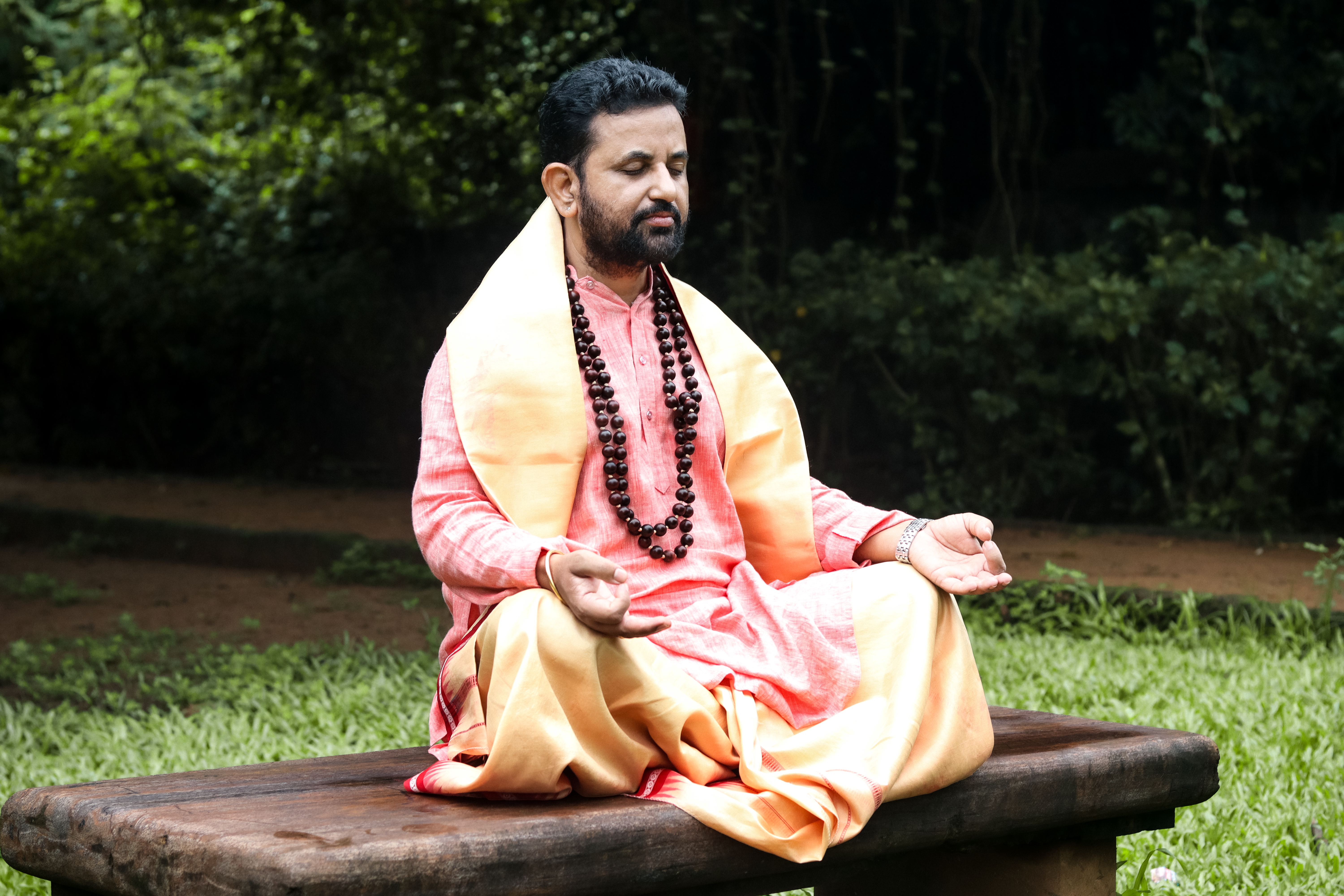Transmission of Mantras and Initiation

Initiation, or Diksha, is a deeply significant spiritual process in which the Guru imparts a sacred mantra or practice to the disciple. This process is considered a divine duty of the Guru, aimed at guiding the disciple on their spiritual journey. Through Diksha, the Guru not only imparts a mantra but also infuses it with their spiritual energy, awakening latent forces within the disciple.
The transmission of a mantra is more than just verbal instruction; it’s a deep, transformative experience. The disciple receives not only the words but also the blessings, protection, and wisdom of the Guru. This sacred act connects the disciple to an ancient lineage, aligning them with the vibrations of higher consciousness. Over time, the mantra, when practiced diligently, becomes a key to unlocking deeper spiritual awareness, offering a path toward self-realization and inner peace.


Embodiment of Divine Love and Compassion
A Guru embodies divine love and compassion, acting as a living example of these transformative qualities. The Guru radiates unconditional love through their presence, providing comfort and healing to the disciple’s emotional, mental, and spiritual wounds. This love is not bound by personal gain or judgment; it is pure, infinite, and nurturing, helping the disciple feel valued and whole.
As the disciples witness and receive this divine love, they understand how to cultivate it within themselves. The Guru teaches that true compassion arises from selflessness and empathy. Over time, the disciple learns to embrace others with unconditional kindness, creating harmony and peace in their own life and the world around them.
Finding a True Guru

In the vast landscape of spiritual teachings, finding a true Guru is considered a profound blessing and a transformative experience. However, not all who claim the title of Guru are genuine. The journey to finding an authentic Guru requires discernment, inner clarity, and a deep sense of spiritual longing. At its core, a true Guru is someone who has realized the divine essence within themselves and has dedicated their life to guiding others on the same path. The following are essential qualities that distinguish a true Guru from mere pretenders:

Self-Realized
A true Guru has reached a state of self-realization—a deep and unshakable awareness of their divine nature. This understanding is not a temporary insight but a lasting state of existence. The Guru lives in constant union with the divine, having transcended the ego, material desires, and worldly illusions. Through their realization, they possess the unique ability to lead others toward spiritual awakening.

Authenticity
Authenticity is at the heart of a true Guru's nature. Unlike false teachers who may seek fame, power, or material wealth, a genuine Guru has no ulterior motives. Their only desire is to assist the disciple in their spiritual growth and liberation. They do not seek followers for personal gain but rather for the fulfillment of the disciple’s spiritual potential. Their actions, words, and teachings are aligned with this sacred mission.

Humility and Compassion
True humility is a hallmark of a realized being. A true Guru exhibits humility and approaches each disciple with deep compassion. Their love is unconditional, and their guidance is steeped in empathy and patience. They understand the struggles and challenges of the spiritual path and offer support without judgment. Compassionate guidance, free from ego or desire for control, allows the disciple to feel secure and supported on their journey.

Consistency in Teaching and Action
A true Guru’s life is a reflection of their teachings. There is no contradiction between what they preach and how they live. This integrity fosters trust and faith in the disciples, as they see that the Guru practices what they teach. Whether in moments of personal interaction or in larger gatherings, a true Guru’s words and actions consistently embody the principles of dharma (righteousness).

Non-Attachment
While a true Guru deeply cares for the disciple’s progress, they remain non-attached. They do not impose their will or control the disciple's life. Instead, they empower the disciple to realize their own divine potential and take responsibility for their spiritual growth. This sense of non-attachment enables the disciple to develop inner strength and self-reliance, knowing that the Guru is a guide, not a master to be obeyed blindly.

Alignment with Tradition
In Hinduism, many Gurus are associated with a distinct spiritual lineage or tradition. These lineages have been tested and refined over centuries, providing a stable framework for spiritual growth. A true Guru is often rooted in such a tradition, bringing with them the authenticity and wisdom of the ages. This connection to tradition assures the disciples that the path they are following is time-honored and proven.

